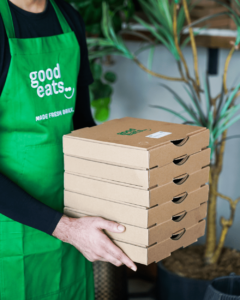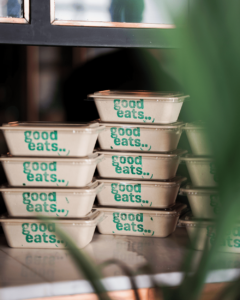In a significant move towards sustainability, Good Eats, a leading provider of school and university catering services in UAE, is setting a new standard by permanently adopting biodegradable food packaging and cutlery made from eco-friendly materials such as sugarcane and corn starch. This initiative is part of the company’s larger effort to reduce its environmental footprint while addressing key concerns in food service, including hygiene, waste, and sustainability.
Biodegradable Solutions for a Greener Future
The shift to using biodegradable packaging and cutlery is a game changer. Traditionally, disposable utensils and containers have been made from plastic, which takes hundreds of years to decompose and is harmful to both land and marine ecosystems. Good Eats is replacing these harmful materials with biodegradable alternatives made from sugarcane and corn starch. These materials break down naturally within months, significantly reducing the long-term environmental impact.


Sugarcane-based products, also known as bagasse, are derived from the fibrous remains of the sugarcane stalk after the juice has been extracted. Bagasse is compostable and biodegrades quickly, making it an excellent replacement for plastic containers. Corn starch-based cutlery, another eco-friendly solution, decomposes within a few months in the right composting conditions.
By adopting these biodegradable alternatives, Good Eats ensures that their operations align with the growing global focus on sustainable practices. This not only benefits the environment but also sends a clear message to students, faculty, and parents about the importance of responsible consumption.
Eco-friendly packaging: protecting the planet, one box at a time.
Reducing Food Waste Through Packaged Meals
In addition to moving to biodegradable materials, Good Eats is tackling another significant issue in institutional catering: food waste. Many school and university cafeterias rely on open buffet systems, which not only lead to substantial food wastage but also raise concerns about hygiene. Leftover food from buffets often ends up in landfills, contributing to methane emissions—a potent greenhouse gas.
Good Eats has adopted a more sustainable approach by offering individually packaged meals. This system ensures that only the necessary amount of food is prepared, greatly reducing the quantity of food waste. Packaged meals also promote hygiene, as food is sealed and handled minimally before consumption, lowering the risk of contamination and foodborne illnesses.
Leading by Example
Good Eats’ initiatives demonstrate that it is possible to offer healthy, hygienic meals to students while also being environmentally conscious. Their comprehensive approach to reducing waste, improving hygiene, and using eco-friendly materials puts them at the forefront of sustainable catering. As more institutions follow suit, this model could become a blueprint for how schools and universities around the world approach food service in the future.
